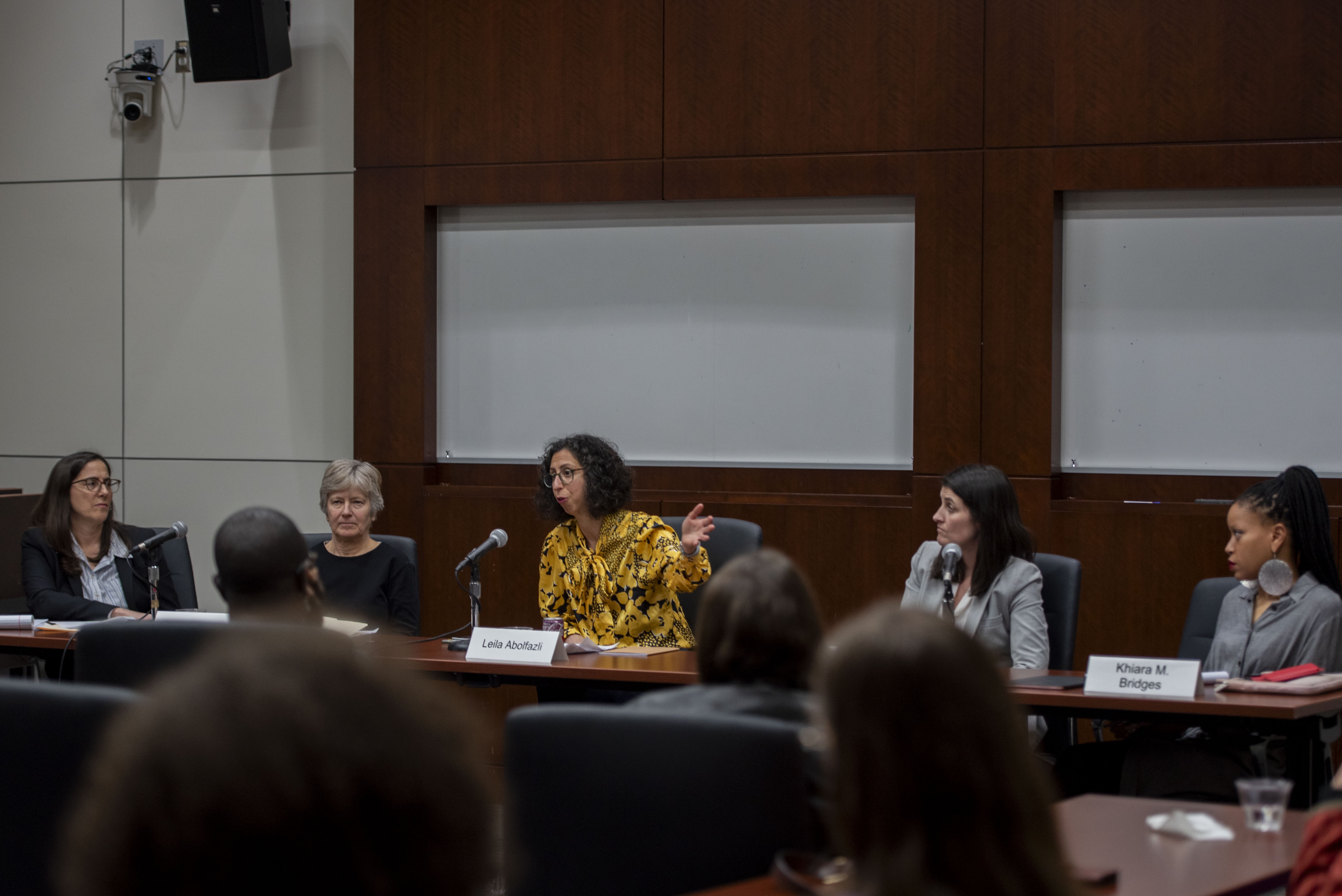UCLA ROTC instructor among 32 suing over ban on transgender people in military

The UCLA Veteran Resource Center is pictured. Sgt. 1st Class Kate Cole, a senior military science instructor at UCLA Army ROTC, is among 32 plaintiffs suing President Donald Trump’s administration for its ban on transgender people serving in the military.
(Darlene Sanzon/Assistant Photo editor)
This post was updated May 6 at 10:49 p.m.
Sgt. 1st Class Kate Cole, a senior military science instructor at UCLA Army ROTC, is among 32 plaintiffs suing President Donald Trump’s administration for its ban on transgender people serving in the military.
President Trump signed an executive order Jan. 27 attempting to ban transgender people from serving in the military, alleging that the standards required for active duty are “inconsistent with the medical, surgical, and mental health constraints on individuals with gender dysphoria.” While United States District Judge Ana Reyes blocked the ban with a preliminary injunction that took effect March 18, the Supreme Court ruled Tuesday to temporarily uphold the ban, which will stay in place while challenges to it move through the courts.
Two law firms – GLBTQ Legal Advocates & Defenders and the National Center for Lesbian Rights – filed the complaint on behalf of the plaintiffs. The firms also led lawsuits during Trump’s first term that blocked his ban on transgender people in the military, including Doe v. Trump and Stockman v. Trump.
NCLR lawyer Shannon Minter said his legal team is arguing that the Trump administration violated the 14th Amendment’s equal protection clause with the ban. The clause has been invoked to prevent discriminatory laws or actions that single out specific groups.
“Our legal claim is very straightforward – that it violates equal protection,” Minter said. “When the government singles out a group of people in order to treat them disfavorably, that violates the requirement that the government has to treat everyone equally.”
Cole, a transgender woman who has served in the military for more than 17 years, said she is only 2 1/2 years away from her retirement. If this ban were to pass, she would lose her ability to retire, she added.
“I would lose my retirement. I would lose my health benefits,” Cole said. “I would lose everything.”
Minter said he believes the rhetoric of the executive order – which claims that transgender people are unfit to serve – is based in animosity. He added that the order could incite hatred for a community that is already marginalized.
“Transgender people are such an unfamiliar group to most people,” Minter said. “Face-to-face human contact is what breaks down prejudice and bias.”
The Pentagon released a policy Feb. 26 that forced people with a “current diagnosis or history of” gender dysphoria into administrative separation – a process more commonly seen in cases of misconduct, Minter said. Administrative separation is a process to discharge service members, often based on a judgment that they no longer meet standards of conduct, performance or fitness for duty.
Minter said administrative separation is a permanent stain on a service member’s record, and this involuntary discharge can imply to future employers that a service member was removed from the army for misconduct.
The 32 plaintiffs consist of transgender service members and potential recruits whom the ban would discriminate against, Minter said, adding that many of the service members are in honorable positions.
“These plaintiffs – they’re really extraordinary people. They are serving ably, honorably,” Minter said. “They’ve gotten medals, commendations. They’ve been deployed in combat. Many of them have been selected for highly responsible leadership positions.”
Abbie Goldberg, a distinguished visiting scholar at the Williams Institute at the UCLA School of Law, co-authored a report on the attitudes of transgender people toward Trump’s second presidency before the inauguration. Goldberg found that 83% of the transgender people surveyed feared discrimination, and 42% had taken at least one legal action to preemptively protect themselves.
Goldberg said she is concerned that Americans who have never met a transgender person will develop prejudices based on the legislation.
“Most trans people understand it’s not just about, ‘You can’t serve in the military,’” Goldberg said. “This is just the beginnings of an erosion of other rights.”
Despite the current political climate, Cole said she loves her job. She added that she feels her time in the military has allowed her to have a sense of family, regardless of where she is stationed, and she wants to continue serving.
“How we identify has no impact on our service,” Cole said. “We just want to continue to do our job.”





